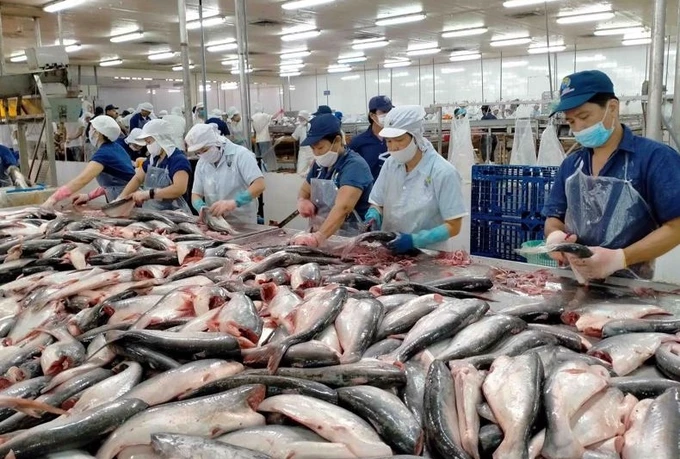
Vietnam’s aquatic exports to Singapore reached over SGD24 million (US$17.64 million) during January - March, gaining a market share of 8.58 percent.
Statistics from the Singaporean corporate regulatory authority showed that during the time under review, the country imported nearly SGD340 million worth of aquatic products from nearly 100 countries and territories, a decrease of 5.67 percent from the same period in 2023. It mainly imported shrimp, crab, crustaceans, fresh fish, chilled fish, fish fillet, frozen fish, and molluscs.
The top exporters of aquatic products to Singapore during the period were Malaysia with a 13.6 percent market share, Norway with 11.45 percent, Indonesia with 11.13 percent, China with 10.15 percent, Vietnam with 8.58 percent, and Japan with 8.34 percent.
Counsellor Cao Xuan Thang, head of the Vietnam Trade Office in Singapore, said Singapore has continuously expanded and diversified supply sources to ensure food security, but this has also boosted competition among seafood exporters to the country.
Moreover, rising inflation is also a big challenge for the fisheries industry of the countries exporting to Singapore, including Vietnam, Thang noted, adding that any that can capitalise on logistics advantages and minimise costs will gain a greater competitive edge in exporting to Singapore.
He said that to maintain, raise its ranking as well as market share, and increase the export value in this market, Vietnam needs to further improve product quality.
Businesses also need to study and make use of the free trade agreements Vietnam has joined while regularly updating themselves on local regulations, especially those on quality standards and labelling. They are advised to participate in trade fairs, promote their brands and products, increase the presence of Vietnamese goods in international markets, improve their competitiveness, and ensure quality consistency.
In addition, they are suggested to be careful in verifying information about partners and delivering goods and making payments to avoid risks in business transactions, according to Thang.
























